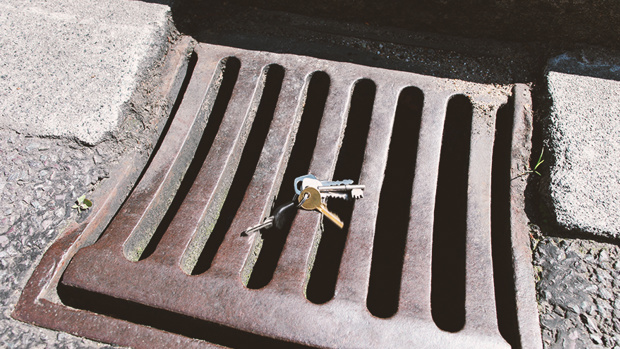Three tips on how to keep track of your stuff!
- Publish date
- Monday, 26 Feb 2018, 10:31AM

Photo/GettyImages
We've all been there before. Most of the time it's when we're already running late and quite possibly about to go crazy because right now is not the time for our keys to play hide and go seek! Wouldn't it just be brilliant if we could just call them and ask where they were?
I mean, there's the new high tech tracking devices that connect via bluetooth, but... they require batteries. Let's be honest you're never going to need to use it until one day and guess what... that day the battery will decide to die. It's Murphies law!!
So here are 3 tips on how to keep track of your stuff.
1. Create a designated place for essentials.
Try this: Walk into your home with fresh eyes and look for a place where you can easily and reliably stow your essentials. Every time. If there is no such place, create one. For example, you might install a shelf with hooks beneath it near a power outlet. That way you can place your wallet and phone (plugged in) on the shelf and hang your keys from the hook. Having designated spots for true essentials like this will ward off the bulk of losses.
If you tend to lose things you use less often... say, your tool kit, the same principle applies: Create a specific place you will always keep it and then stick to it. Label the spot, if necessary, to remind yourself.
2. Create multiple places if needed.
Robbins knows our routines can vary. Maybe you enter your home through the back door when coming in from a run but through the front when coming in from your car. Stowing your stuff near the front door when you've just come in the back goes against human nature. So he suggests you create designated spots for your essentials near both doors.
"You want to limit the possible places where lost things can go to as few places as possible," Robbins said. That way you never need to check more than those one or two places to find something.
3. Scan places before you leave.
What about when you're out and about? First, Robbins quickly creates a temporary "designated place" wherever he is. At a coffee house, maybe he deliberately places his essential items on the table's right-hand corner: "Then, when I'm going to leave a place, first I scan the area that I designated as my homeless-items place."
Next he scans the entire room or, at least, wherever he has been in that room. For example, Robbins gathers all his luggage by the door before leaving a hotel room, then walks the room from wall to wall to see if he's forgotten anything. He may "waste" a couple of minutes doing that, but he saves many more minutes -- calling the hotel, having his lost items shipped -- when he finds something he forgot.
Robbins's guidance is gold. I decided years ago to put my wallet in the left outside pocket of my purse and my keys in the right -- and I rarely lose them. But sometimes I do. What then?
I turned to certified NeuroLeadership coach Linda Cassell of Quantum Leap Coaching and Training, who has studied brain science extensively to help her clients be more effective executives -- and people.
A neuroscientist's key question is, "Under what conditions do we lose things?" she said.
"There is an old adage that says 'never go to sleep when you are angry,' " Cassell said. "If you want to know how not to lose things, never put anything away when you are stressed." This explains why my own system was derailed when I was frantically rushing. "Even if you have the good habit of putting your keys in the same place every time," Cassell explained, "chances are, under those conditions, stress will void that habit."
- NZ herald

